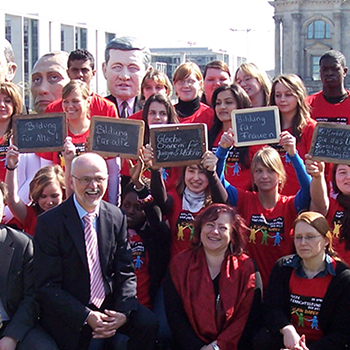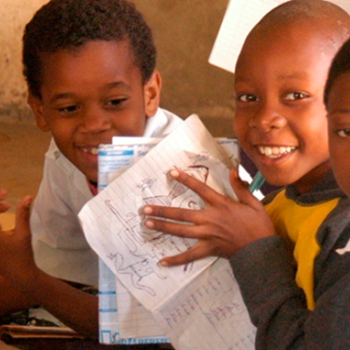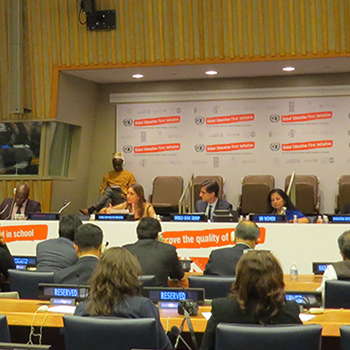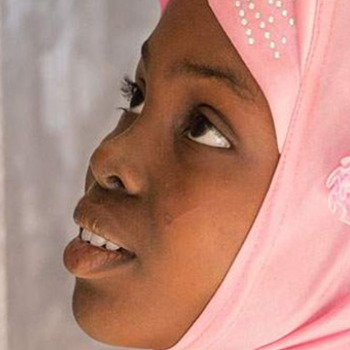In May 2015, UNESCO organized the World Education Forum in Incheon together with the World Bank and several United Nations agencies like UNHCR and UNICEF. The final declaration was adopted by over 1,600 participants from 160 countries, including over 120 Ministers, heads and members of delegations, heads of agencies, officials of multilateral and bilateral organizations, and representatives of civil society, the teaching profession, youth, and the private sector. The Incheon Declaration sets out a new vision for education for the next fifteen years, with bold and innovative actions, to reach an ambitious goal by 2030.
The international education framework
In May 2015, UNESCO organized the World Education Forum in Incheon together with the World Bank and several United Nations agencies like UNHCR and UNICEF. The final declaration was adopted by over 1,600 participants from 160 countries, including over 120 Ministers, heads and members of delegations, heads of agencies, officials of multilateral and bilateral organizations, and representatives of civil society, the teaching profession, youth and the private sector. The Incheon Declaration sets out a new vision for education for the next fifteen years, with bold and innovative actions, to reach an ambitious goal by 2030.
The Declaration served as a basis for the development of the Sustainable Development Goal on Education – SDG4 – which was adopted in September 2015. The Education 2030 Framework for Action provides a roadmap to achieving SDG4’s 10 targets. It was adopted in November 2015 in Paris by 184 UNESCO Member States. The Framework is the result of a collective effort involving in-depth, wide-ranging consultations, guided by the Education for All (EFA) Steering Committee convened by UNESCO, and finalized through the Drafting Group for the Education 2030 Framework for Action. The Global Campaign for Education was an active part of all these processes.
The Declaration overall recognize the importance of education to achieve all the other Sustainable Development Goals by 2030, and adopts a right-based, humanistic vision of education and development, based on the principles of human rights and dignity, social justice, peace, inclusion, as well as shared responsibility and accountability.






